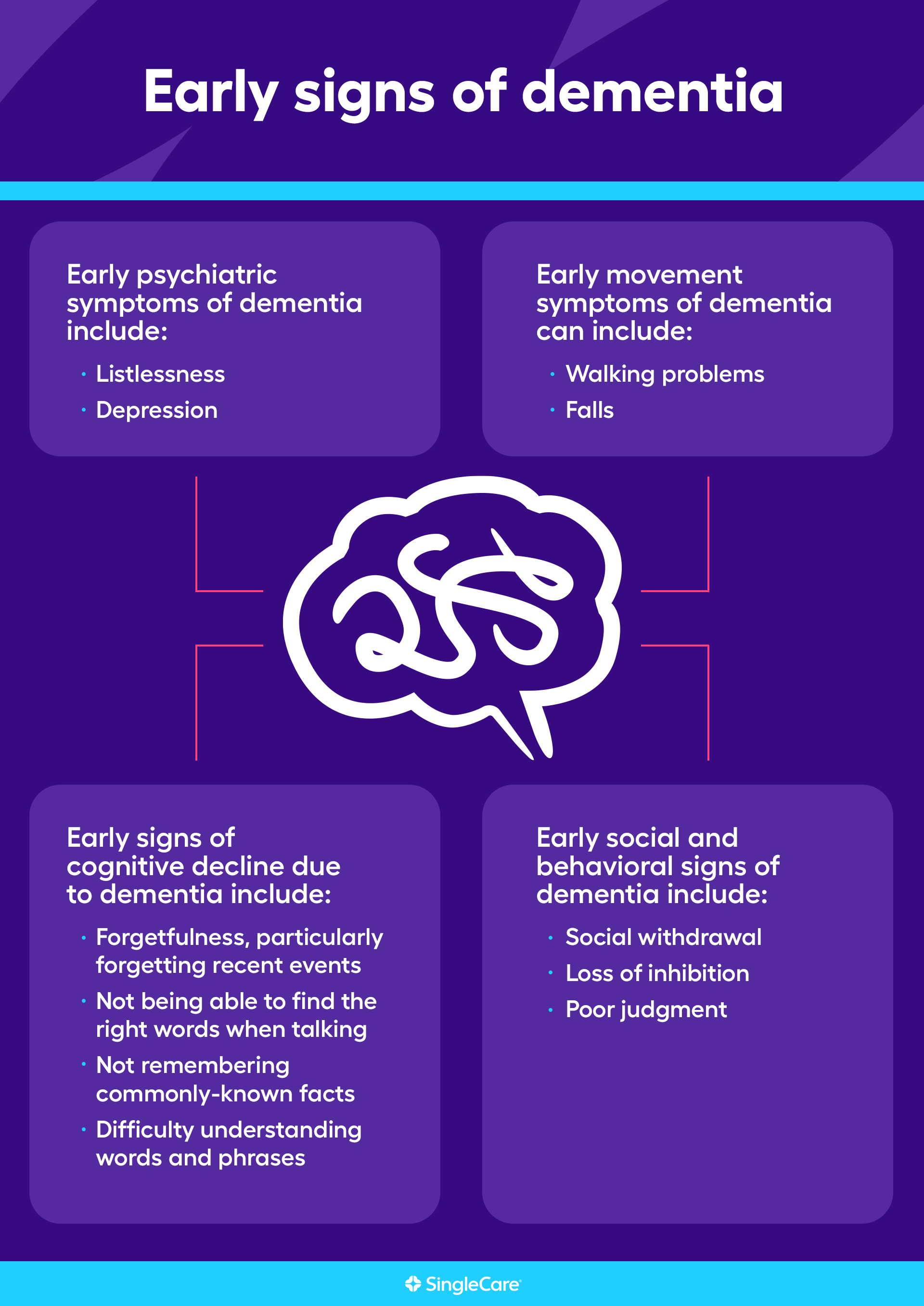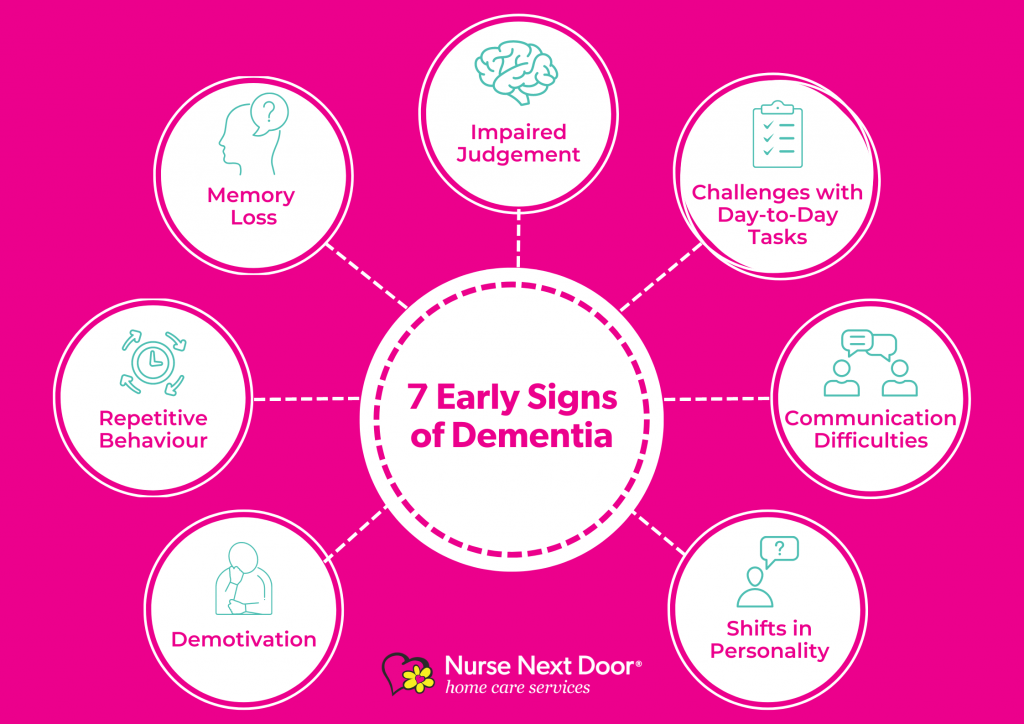The Link Between Fall Risk and Cognitive Decline Explained
The Link Between Fall Risk and Cognitive Decline Explained
Blog Article
Understanding the Impact of Dementia on Life and Caregiving
Dementia affects daily life in extensive ways, influencing not just those diagnosed however likewise their caretakers. As cognitive decline advances, you may notice modifications in interaction and routine that obstacle both celebrations.
The Phases of Mental Deterioration and Their Results on Life
As you navigate the trip of dementia, comprehending its phases can noticeably influence exactly how you take care of day-to-day life. Mental deterioration typically proceeds with three primary stages: early, middle, and late.
During the middle phase, you'll experience much more obvious cognitive decrease. Daily tasks may end up being difficult, and preserving your self-reliance may require modifications. Making use of pointers and streamlining your environment can aid.
In the late stage, individuals commonly need significant assistance with daily activities. Preparation for care comes to be important, focusing on comfort and top quality of life. By comprehending these phases, you're far better equipped to react proactively, ensuring you or your enjoyed one can browse the difficulties with dignity and grace.

Changes in Communication and Social Interaction
How do modifications in communication affect your daily communications as mental deterioration proceeds? As mental deterioration advances, you may observe that simple discussions come to be tough. Words might leave you, or you may battle to locate the right expressions. This can bring about aggravation for both you and your enjoyed ones. Nonverbal signs, like gestures or faces, end up being progressively essential.
You might locate it simpler to connect via these methods rather than relying only on spoken language. Listening skills can also transform; you may discover it harder to adhere to conversations or bear in mind what was simply said (Vascular Dementia). This can lead to misconceptions or sensations of seclusion
Motivating patience and creating a supportive atmosphere can assist. Participating in activities that foster connection, like music or art, can improve social communications. Remember, maintaining relationships is still possible; it's just about adjusting to brand-new means of connecting.
Influence On Daily Routines and Activities
While navigating daily regimens, you'll likely discover that jobs you when finished easily come to be extra tough as dementia progresses. You might locate on your own neglecting steps in acquainted regimens or battling to recall where you put things.
Adapting your environment can help; for circumstances, labeling things or using checklists can streamline jobs. Involving in recurring, organized tasks can additionally give convenience and a feeling of success. Keep in mind, it's okay to ask for assistance.
Behavior and emotional Difficulties
Guiding through day-to-day routines can bring around not simply practical challenges, yet behavioral and likewise psychological ones. You may observe changes in state of mind, such as raised anxiousness or irritation, which can come from complication or difficulty in completing tasks. As you navigate these minutes, it is important to recognize that your liked one may express their feelings via habits like anxiety or withdrawal.
These psychological reactions can be uncertain and may arise without caution, leaving you both feeling overwhelmed. You could locate that acquainted atmospheres or routines can help in reducing anxiousness, however keeping persistence comes to be considerable. It is crucial to validate their feelings, even if you don't totally understand them.
The Duty of Caregivers in Supporting Individuals With Dementia
As a caretaker, you play an important function in supplying emotional assistance for people with dementia. Developing daily treatment routines can produce a feeling of security and convenience, helping to alleviate their anxiousness. By recognizing their requirements and using effective methods, you can substantially boost their lifestyle.
Psychological Assistance Techniques
When looking after somebody with dementia, comprehending the emotional landscape is essential for giving effective support. You'll typically find that patience and empathy go a long way. Validate their feelings; if they share complication or irritation, acknowledge it without rejecting their feelings. Straightforward gestures, like holding their hand or keeping eye call, can develop a feeling of security. Attempt to participate in tasks that they enjoy, as this can stimulate happiness and link. Bear in mind to interact clearly and slowly, making use of a tranquil tone. Motivate expression via songs or art, which can act as an effective electrical outlet. Inevitably, don't neglect to look after your own emotional needs; seeking support on your own can boost your ability to care for them.
Daily Treatment Routines
Establishing daily care regimens is important for providing stability and comfort to people with mental deterioration, as these regimens can assist decrease complication and anxiousness. You can start by laying out a constant routine for meals, tasks, and remainder. This predictability assists your liked one feel extra safe and secure and engaged.
Integrate familiar jobs, like folding washing or watering plants, which can evoke positive memories and foster a sense of success. Use visual hints, such as lists or calendars, to assist them via the day.
Be versatile, though; adjust regimens as required based upon their mood or power degrees. Vascular Dementia. Remember, your perseverance and understanding are essential in steering their changing demands, ensuring they really feel sustained and valued throughout their day-to-day live
Developing a Safe and Comfortable Living Atmosphere
Developing a comfy and secure living atmosphere is crucial for individuals with mental deterioration. You'll intend to make home security adjustments that minimize threats and guarantee familiarity to supply a feeling of comfort. By focusing on these aspects, you can help develop an area that sustains both security and well-being.
Home Safety And Security Alterations
As you browse the challenges of browse this site dementia, making home safety and security modifications can significantly enhance convenience and safety. Begin by eliminating tripping risks like rugs and mess, guaranteeing pathways are clear. Set up grab bars in washrooms straight from the source and non-slip floor coverings in the shower to avoid falls. Take into consideration using brighter lighting and night lights to improve presence, specifically during nighttime. Tag important locations, such as the washroom and kitchen area, with clear indicators to aid with alignment. Protect any sharp items or poisonous materials out of reach. In addition, evaluate your home's alarm systems and locks to verify they're straightforward and give tranquility of mind. These adjustments not only promote safety yet additionally encourage freedom, permitting your loved one to feel more at convenience in their setting.
Convenience and Familiarity
After making certain a secure environment with essential adjustments, promoting comfort and knowledge is important for individuals with mental deterioration. Beginning by customizing their area. Usage acquainted shades, designs, and photos that evoke delighted memories. A favorite blanket or chair can offer a complacency. Maintain a consistent routine to assist them really feel based and minimize anxiousness. Basic, acquainted dishes can additionally develop a calming ambience. Maintain paths clear and clutter-free to avoid confusion. Integrate soft illumination, as brilliant lights can be disorienting. Think about adding relaxing fragrances, like lavender, to promote relaxation. Taking part in familiar activities, such as paying attention to music or horticulture, can improve their feeling of belonging, making their living setting a real shelter.
Strategies for Reliable Caregiving and Support
While maneuvering the obstacles of mental deterioration care can really feel frustrating, executing effective approaches can considerably improve both the caretaker's and the individual's daily experience. Beginning by establishing a routine; predictability helps in reducing anxiety for both you and your liked one. Use clear, straightforward communication-- brief sentences and direct questions can prevent complication.

Don't forget to care for on your own; routine breaks and get in touch with support system. Sharing experiences with others in comparable circumstances can supply important insights and psychological relief.
Lastly, remain person and versatile. Dementia can bring uncertain adjustments, so adapting your approach is crucial. By using these techniques, you can foster an extra favorable environment that profits both you and your liked one.
Frequently Asked Inquiries

What Are the Different Kinds Of Dementia?
You'll find several kinds of dementia, including Alzheimer's, vascular mental deterioration, find this Lewy body mental deterioration, and frontotemporal mental deterioration. Each kind influences memory and cognitive feature in different ways, so recognizing the differences is essential for proper diagnosis and treatment.
Just How Can I Help Someone With Early-Stage Dementia?
You can help someone with early-stage dementia by being individual, providing assistance, and urging them to take part in activities they delight in. Keeping routines regular and preserving open interaction can also make a considerable difference in their every day life.
Are There Financial Resources Available for Dementia Treatment?
Yes, there are funds offered for mental deterioration treatment. You can explore government aid programs, not-for-profit organizations, and insurance alternatives. It's likewise wise to consult neighborhood companies for specific sources tailored to your scenario.
What Legal Factors To Consider Should Caregivers Recognize?
As a caregiver, you need to think about power of attorney, medical care proxies, and guardianship legislations. It's important to comprehend the legal civil liberties and obligations you hold, ensuring your liked one receives appropriate treatment and security.
How Can I Deal With Caregiver Stress?
You can deal with caregiver stress and anxiety by focusing on self-care, seeking assistance from close friends or teams, setting sensible expectations, taking breaks, and exercising leisure methods. Remember, your well-being matters equally as much as the person you're looking after.
Comprehending the Influence of Dementia on Daily Life and Caregiving.
As you browse the journey of dementia, recognizing its stages can markedly impact just how you manage everyday life.While steering daily routines, you'll likely see that tasks you once finished easily become much more tough as mental deterioration advances.Establishing everyday treatment regimens is essential for supplying security and comfort to individuals with dementia, as these regimens can help minimize complication and anxiousness.While steering the difficulties of dementia care can feel overwhelming, applying efficient strategies can considerably boost both the caretaker's and the patient's daily experience.
Report this page